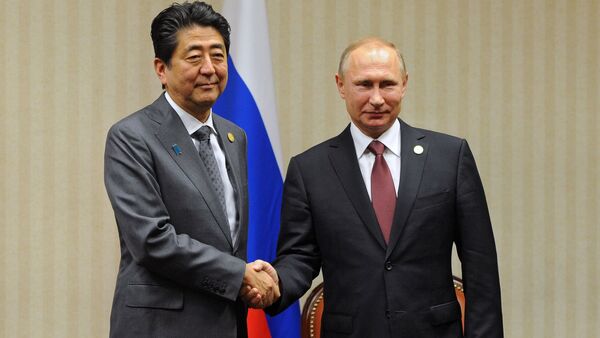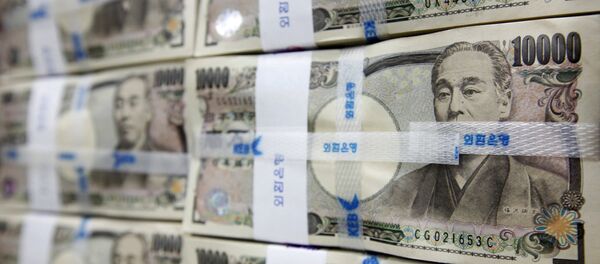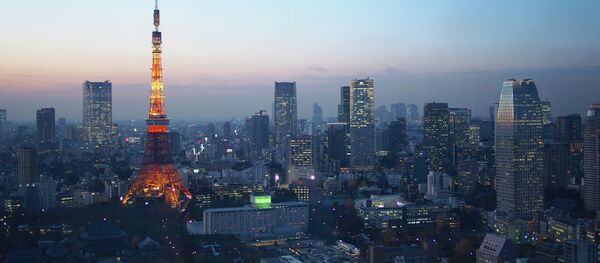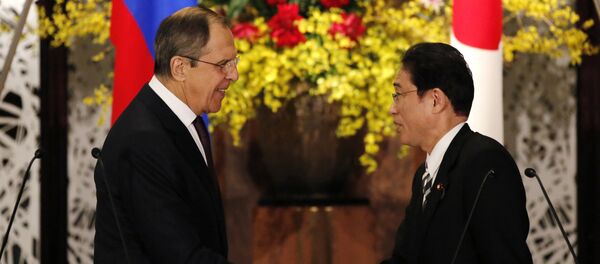Putin is scheduled to visit Japan on December 15 for a meeting with Japanese Prime Minister Shinzo Abe in his home prefecture of Yamaguchi, Honshu Island.
It is hoped that the talks will lead to a breakthrough in bilateral relations between Japan and Russia, which have never signed a formal peace treaty after the end of the Second World War, because of a territorial dispute about the Southern Kuril Islands.
Japan makes a territorial claim to the four Kuril Islands of Kunashir, Shikotan, Habomai and Iturup, which became part of the Soviet Union after World War II.
President of the Chamber of Commerce and Industry of the Russian Federation Sergey Katyrin told Sputnik that he is hopeful of advancement in bilateral economic relations, even if a political settlement on the territorial dispute proves out of reach.
"I hope that we can still make some kind of breakthrough. Even if we can't sign a peace treaty this time, (I hope) it will start greater economic activity. For us it's really important that Japan starts working more actively with Russia especially with a view to the technological, personnel and financial resources they have. Of course, it would be good if Japan joined in economic co-operation in the Far East, but it's not just about that. There are a lot of projects in various fields which we could work together on," Katyrin said.
Russian senator Vladimir Lukin said that while he has great expectations for Putin's visit, it is unrealistic to expect a peace treaty yet.
"Relations with Japan are very important for our country. Of course there are optimists who think that we will solve all the problems with Japan with our President's visit, but I've been engaged with these issues for so long that I take a more cautious position."
"I hope that some practical agreements, on trade and economics and so on, will be made. But the main territorial problem is too complicated, above all because of domestic – Japanese and Russian – reasons, to be solved so quickly. Yes, it hasn't been solved for a few decades now, and it still won't be resolved for some time because of its extreme complexity. However, something will eventually emerge in small steps, there just needs to be a genuine desire to solve the problem."
"The very fact that this visit, which was postponed several times, is taking place, and the fact that Abe is holding it in his small home town in Yamaguchi, means that the Japanese Prime Minister considers Putin to be not just the head of state of a neighboring country, but would like to see him as a friend. Part of the negotiations will be held in an informal atmosphere, in order to better understand each other. In my opinion, this is a good signal, and maybe they will be able to negotiate a great deal," Shokhin said.
The businessman is looking forward to greater economic co-operation with Japan, as proposed by Abe's eight-point economic co-operation plan.
"Japan is preparing to present Russia with the possibility of establishing production facilities focused on the Asia-Pacific region, which is of course extremely beneficial to us. Obviously, there is a mutual desire to move forward on specific projects and areas. It seems to me that the Japanese side has departed from the model, 'islands first, then (economic) cooperation.' The fact that the negotiations on the islands and economic cooperation are advancing in parallel is a good sign," Shokhin said.
Former Russian ambassador to Japan Alexander Panov told Sputnik that economic co-operation is crucial to reaching a political settlement.
"A breakthrough can hardly be expected, but agreements are sure to be confirmed, and Abe will continue with his course of economic cooperation with Russia. Work is going on now to prepare the agreements to be signed during the negotiations. This is a very positive trend, after all we've said to the Japanese several times, 'let's develop economic relations and then we will reach a level of trust which will make it easier to find a compromise.'"
"Compromises are possible in almost any situation, the issue is the price of the concessions. In principle, Putin has, designated the limit of concession – that is fixed in the Soviet–Japanese Joint Declaration of 1956. The Japanese haven't given a clear answer yet, and now it is impossible to predict how and what will happen next. There is one thing to be pleased about – both sides are in a positive, constructive mood," Panov said.






